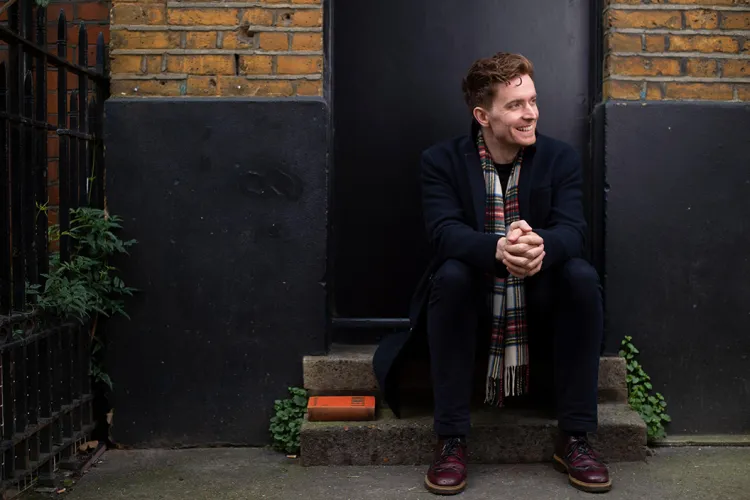Q&A with Visiting Cornell Professor of History Brendan McGeever

McGeever’s core areas of teaching and research include the study of antisemitism, racialization, and anti-racism; the sociology of class; the study of the former Soviet Union; and Marxism and Marxist theory.
The historical sociologist Brendan McGeever is this year’s Julian and Virginia Cornell Visiting Professor, in something of a return engagement.
McGeever, senior lecturer in sociology at Birkbeck, University of London, visited the College in 2017 for a guest lecture on the relationship between race and class in the Brexit referendum.
“What immediately struck me was the rigor and intellectual curiosity of the students who participated in the discussion that day,” says McGeever. “These early impressions of Swarthmore have only deepened since returning last month.”
McGeever’s core areas of teaching and research include the study of antisemitism, racialization, and anti-racism; the sociology of class; the study of the former Soviet Union; and Marxism and Marxist theory.
His award-winning 2019 book, Antisemitism and the Russian Revolution, explores the Bolshevik response to antisemitism during the Russian Revolution and Civil War. His most recent work, Britain In Fragments: Why Things Are Falling Apart, was published in 2023. Co-written with Satnam Virdee, it traces how a bipartisan commitment to neoliberalism has culminated in a historic crisis of representation and legitimacy, opening the doors to competing nationalist forces.
McGeever’s work has been published in Ethnic and Racial Studies, The Political Quarterly, Patterns of Prejudice, and in several newspapers and magazines including The Guardian, Haaretz, The Independent, and Jacobin. In 2019, he was selected as a BBC New Generation Thinker, and his work appears on national radio.
A few weeks into his teaching at Swarthmore, McGeever discussed what appealed to him about the opportunity, courses he will be teaching this academic year, and his other plans and hopes for his time at the College.
What drew you to this opportunity at Swarthmore?
I’m both grateful and honored to be here at Swarthmore, an institution I have admired for many years. Every time I step into a Swarthmore classroom, I’m impressed by the criticality and depth of engagement of the students. There is nothing passive about the way they engage with their studies. I have also been struck by the liberal arts model of teaching, which is new to me. Its emphasis on interdisciplinarity, critical thinking, and discussion-led learning feels like exactly the kind of approach we need to address the multilayered, systemic crises in the world that are unfolding around us.
What courses are you teaching this year?
This semester, I’m co-teaching a course with Robert Weinberg [Isaac H. Clothier Professor of History and International Relations], which we have called “The Nationality Question in Russia, 1917 to the Present: Nation-Building, Empire, and Decolonization.” Bob’s pioneering scholarship in the field of Soviet Jewish studies has been a major source of inspiration for me over the years; to have the opportunity to teach with him is very special, indeed. Our course touches on one of my core research interests, which is to explore how Marxist social movements have addressed the entanglements of class with race, nationality, and other modalities of oppression.
Next semester, I’ll be teaching a course on antisemitism. The question of antisemitism is a major focus of debate and controversy. While its persistence through time is clear to see, consensus over what constitutes antisemitism has frayed dramatically in recent years. My course will invite students to explore the politics of antisemitism today, as well as some of the theoretical and conceptual issues that underpin the different (and often competing) ways of understanding it.
What else are you planning to do this year?
I’m using this year to write several research papers. I’ve just finished an article with two colleagues from London, David Feldman and Ben Gidley, on the urgent need to rethink the way antisemitism is understood and opposed politically. I’m also about to start working on a new project on the responses of Black radicals in the United States to the pogroms in revolutionary Russia during the early 20th century, which I’m excited about.
From the beauty of the campus itself to the insights and expertise of the colleagues I get to speak to day-to-day, Swarthmore is proving to be a stimulating place to think and work. I’m looking forward to the year ahead.



